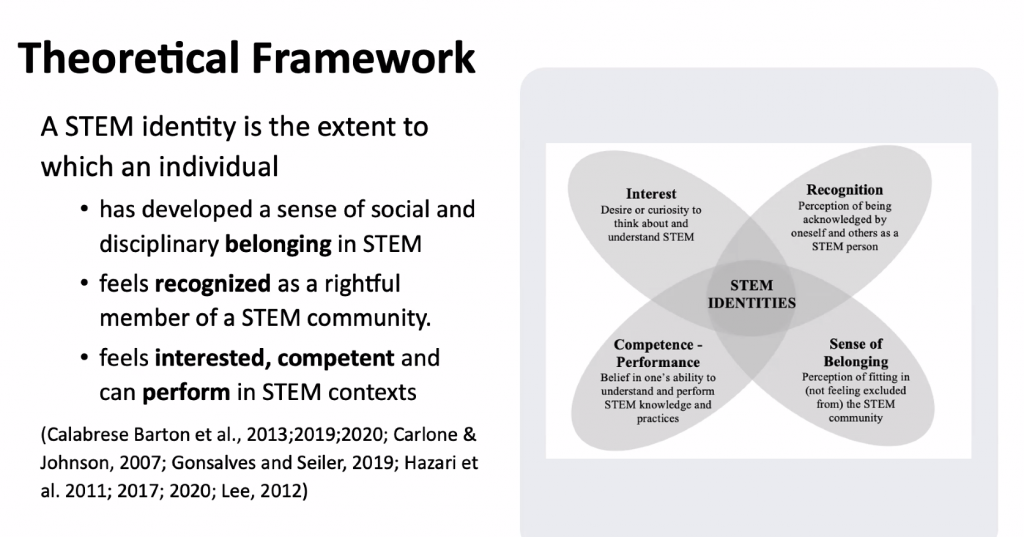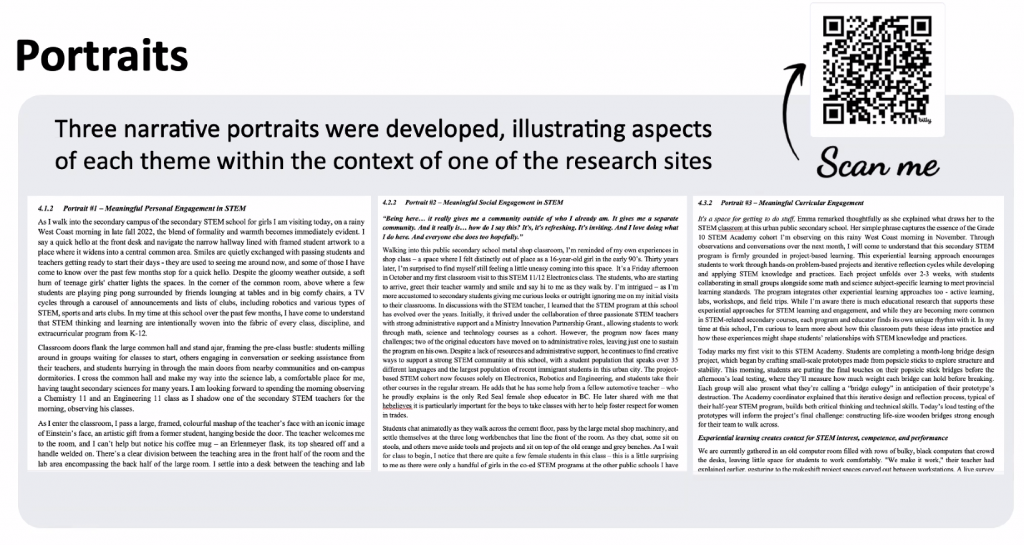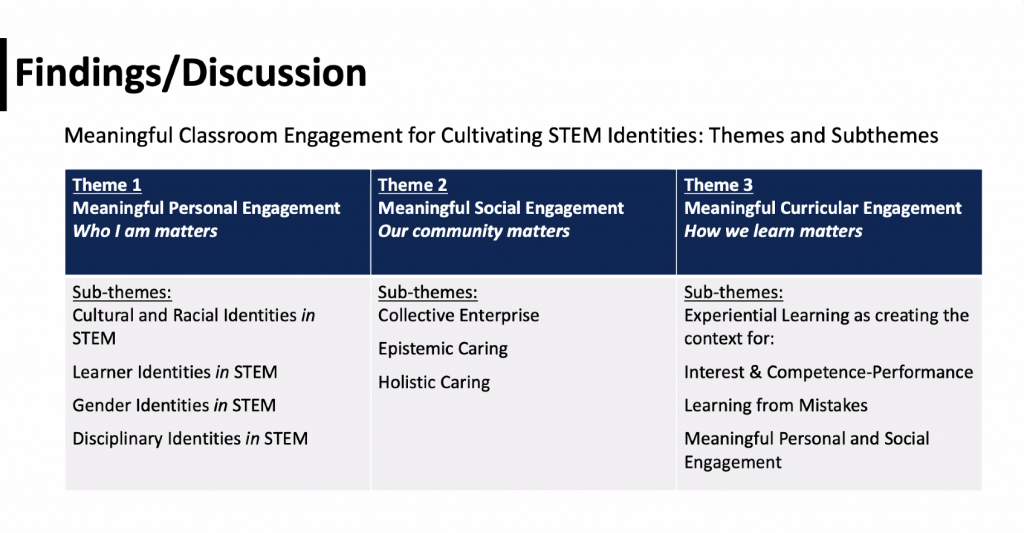Summary of SyMETRI Meeting: April 8th, 2025 by Qiaochu Xu
Presenter/Guest Speaker: Dr. Elizabeth Saville, from Okanagan School of Education, University of British Columbia Okanagan
Date: April 8th, 2025
Host: Dr. Cynthia Nicol
At the SyMETRI meeting on April 8th, 2025, Dr. Elizabeth Saville shared key insights from her dissertation research, which explored how secondary students make sense of their experiences in STEM classrooms in ways that support the construction of STEM identities. Employing a qualitative portraiture methodology, her study foregrounds students’ voices by capturing richly detailed narratives from a diverse cohort of 57 participants. These portraits illuminate how classroom cultures can enable or constrain identity development in STEM, particularly for students from historically marginalized backgrounds.
Grounded in the understanding that STEM identities are multidimensional and intersectional, and shaped within socially and culturally situated classroom spaces, this research highlights how dominant norms and systemic inequities influence students’ sense-making practices. Dr. Saville emphasized the crucial role of educators as agents of change, capable of cultivating classroom cultures that more equitably support students in constructing and sustaining meaningful STEM identities.
Through focus group data, the study identified three distinct forms of meaningful engagement that foster STEM identity development:
- Personal Engagement – connections to individual interests, values, and lived experiences;
- Social Engagement – opportunities for collaboration, peer recognition, and community-building;
- Curricular Engagement – pedagogical practices and learning experiences that affirm diverse ways of knowing and doing in STEM.
These thematic findings extend current understandings of STEM identity by linking them to experiential learning pedagogies and emphasizing the importance of caring, inclusive, and collaborative classroom communities. The study offers a conceptual framework that educators can draw upon to support equity-oriented teaching and learning practices. While grounded in the unique contexts of the research sites, the insights presented are broadly relevant and provide practical guidance for educators seeking to create more equitable STEM classroom cultures and decolonize practices and discourses in STEM education.
Here are some slides from her presentation:
Following the presentation, SyMETRI members engaged in a lively and thoughtful discussion around the nature of STEM identities—how they are perceived, shaped, and supported within classroom contexts. SyMETRI members reflected on how their own practices promote STEM identity development and raised important questions about disciplinary boundaries within STEM. In particular, they asked Dr. Saville how students distinguish between different components of their STEM identities, such as math versus science or physics-based identities, and how these distinctions emerge in students’ narratives. This exchange opened up further dialogue about the role of subject-specific cultures and pedagogies in shaping how students come to see themselves within the broader landscape of STEM.
Bio:
Elizabeth Saville is a teacher educator and educational consultant with over 25 years of experience in STEM education at the K-12 and post-secondary levels. A recent PhD graduate from the University of British Columbia Okanagan, her research is focused on transforming classrooms to foster equity in STEM education. She also works to support educators in building critical AI literacy skills and understanding informed and responsible implementation of Generative AI in educational spaces.



